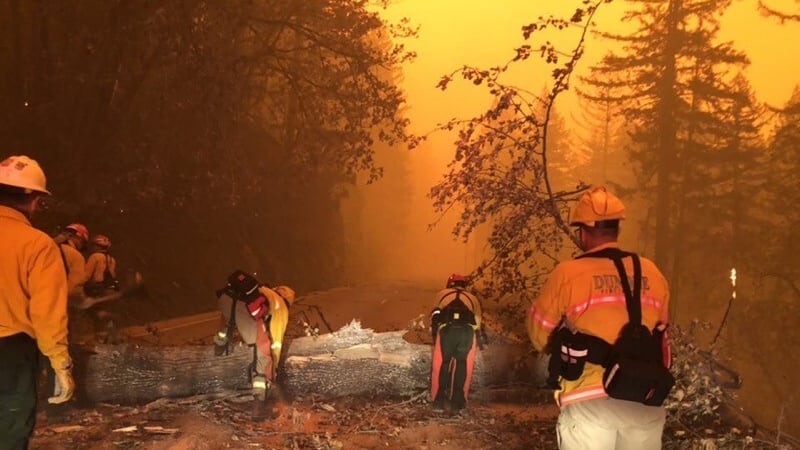By McKinzie Smith
We've all seen them by now.
The orange skies. The quirky captions. Maybe even a thoughtful pose. Wildfire photos have started to feel inescapable on Instagram. In this moment of extraordinary tragedy, amateur photographers are scrambling to take over hashtags and gain followers. And it pisses me off.
My experience with the fires is similar to thousands all over the West Coast. I was evacuated from the Bald Peak Fire last Tuesday evening, rushing from my home in an absolute panic, grabbing only my laptop, our dogs, and the ugliest pair of jelly sandals you've ever seen.
Once I was safe, I checked in on social media, scouring location tags for information on fire containment. Anything useful tended to be buried under artsy images of the destruction I had just escaped from. One portrait showed a young woman in a face mask walking toward a fiery horizon with a caption about tackling adversity. I found them all deeply upsetting.
Taking photos of the fires isn't inherently inappropriate. Journalists risking their lives to capture the impact up close are an entirely different case. What isn't OK is using someone else's traumatic moment to boost your social media engagement.
The photography culture of Instagram is one based on engagement. It's important to use lots of hashtags and show a side of something that no one else has to build up likes and comments. It encourages one-upmanship to please the algorithm.
A major natural disaster, especially one as visually striking as a wildfire, might seem an opportunity to grab your camera and get snapping. But in so doing, you're potentially retraumatizing evacuees, and contributing to a tone-deaf internet culture that prioritizes likes over basic empathy. You're not a documentarian—you're only bringing attention to yourself.
